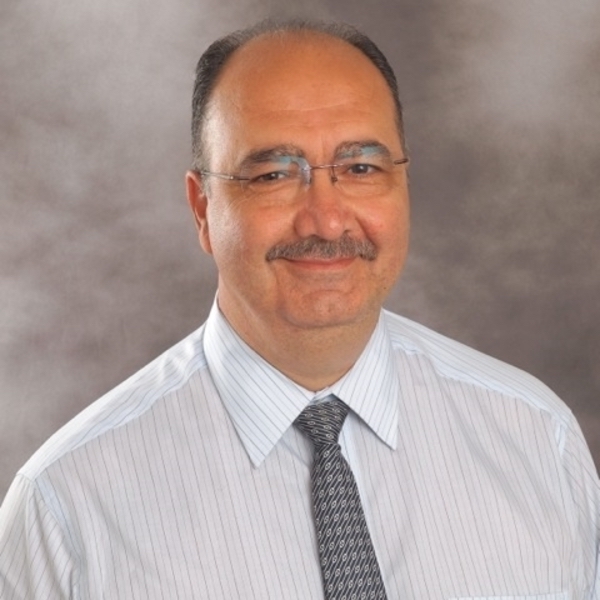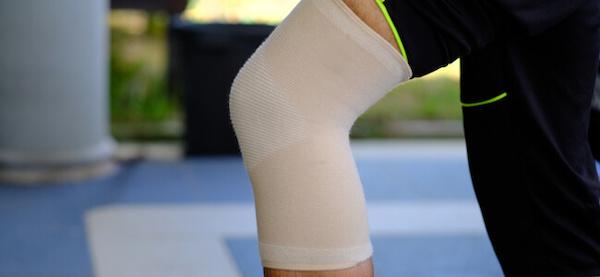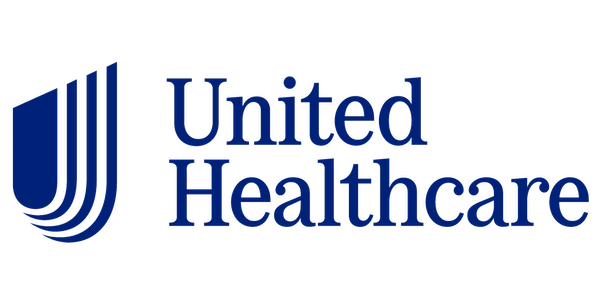White Plains Hospital Recognized for Excellence in Nursing Care
- Details
- Written by: Joanne Wallenstein
- Category: Health
 White Plains Hospital has been re-designated as a Magnet organization for the third time by the American Nurses Credentialing Center (ANCC), a subsidiary of the American Nurses Association. Magnet designation is the highest and most prestigious international distinction a healthcare organization can receive for nursing excellence. Only about nine percent of hospitals in the United States are currently Magnet designated and just two percent have received this designation three times.
White Plains Hospital has been re-designated as a Magnet organization for the third time by the American Nurses Credentialing Center (ANCC), a subsidiary of the American Nurses Association. Magnet designation is the highest and most prestigious international distinction a healthcare organization can receive for nursing excellence. Only about nine percent of hospitals in the United States are currently Magnet designated and just two percent have received this designation three times.
“We are so proud to receive the honor of Magnet designation once again,” said Susan Fox, President and CEO of White Plains Hospital. “While Magnet is the ultimate credential for high-quality nursing, this is a tremendous achievement that recognizes the work of everyone in our organization for working as a team to support our patients.”
To be recognized as a Magnet hospital, healthcare organizations must pass a rigorous and lengthy review process demanding widespread participation from leadership and staff. The path to Magnet status requires extensive written documentation to demonstrate qualitative and quantitative evidence related to patient care and outcomes as well as completion of a multi-day comprehensive on-site visit by Magnet appraisers. The ANCC Magnet survey team conducted a three-day site survey with White Plains Hospital in September 2021, interviewing more than 300 people from the Hospital and community.
“This Magnet designation is a direct reflection of the high caliber of our nursing professionals. The culture of nursing at White Plains Hospital is one in which our staff is encouraged and supported to begin and end their careers here. We provide them with countless opportunities for growth, education and professional development,” said Leigh Anne McMahon, DNP, MHA, RN, NEA-BC, Executive Vice President of Patient Care Services and Chief Nursing Officer at White Plains Hospital. “I am constantly impressed by the talent, leadership, support and unstoppable work ethic that our nursing staff demonstrates every day for their patients and each other.”
The Magnet program was created by the American Nurses Association in December 1990, and the first hospital in the US to be named Magnet was in 1994. The Magnet model is designed to provide a framework for nursing practice, research, and measurement of outcomes. The foundation of this model is composed of various elements deemed essential to delivering superior patient care. These include the quality of nursing leadership and coordination and collaboration across specialties, as well as processes for measuring and improving the quality and delivery of care.
Magnet recognition has been shown to provide specific benefits to hospitals and their communities, such as:
-Higher patient satisfaction with nurse communication, availability of help, and receipt of discharge information
-Lower risk of 30-day mortality and lower failure to rescue
-Higher job satisfaction among nurses
-Lower reported intentions among nurses to leave current position
White Plains Hospital initially achieved Magnet recognition in 2012 and 2016. Evaluation for re-accreditation occurs every four years.
Why Exercise Is Great Medicine for Chronic Joint Pain
- Details
- Written by: Dr. Michael Schwartz
- Category: Health
 Once you find the motivation, movement can actually decrease your pain.
Once you find the motivation, movement can actually decrease your pain.
The CDC reports that some 15 million Americans suffer from severe joint pain related to osteoarthritis – and half of them report that this pain occurs almost every day. That’s a staggering number of people who may be putting off activities and sports they enjoy either due to feeling drained by the symptoms of their condition, or because they fear exercise might actually make their sore shoulder, elbow, back or knee worse.
Many people suffer chronic joint pain without having a specific structural problem or injury. Oftentimes, this pain happens because the muscles around the joints are too weak and aren’t able to adequately absorb physical stress during activity. The result is extra pressure and strain on the joints, which may be already experiencing a wearing of cartilage or “cushioning” between the moving parts of the joint. 
Don’t be afraid to move! Exercising improves muscle strength and shock absorption, as well as the functioning of the fast twitch muscles (for sudden, powerful movements) and slow twitch muscles (for sustained energy to last a long time) needed for anaerobic strength and aerobic muscle endurance, respectively. Plenty of research supports moderate physical function as a prescription for pain from osteoarthritis without making the condition worse – provided you have had no new injuries like a fall.
In addition to muscle conditioning, moderate exercise helps to stimulate the flow of fluid that provides nutrients and proteins that keep the remaining cartilage healthy. Exercise can also strengthen the tendons, which help support the muscles, as long as cross training is done to not overwork or overstrain one muscle or tendon grouping.
My advice? Get moving as often as you can. It may be tough to start out, especially if your pain is wearing you down mentally as well as physically but let the high likelihood that you will feel better motivate you. Start slow and look for a balance of strength and endurance exercises, while mixing in your favorite aerobic activity – even if that means briskly walking around the block. Bring a resistance band along and stop at your local park or ballfield for some planks and monster walks.
You may be surprised to discover that your pain lessens or seems not as distracting as you get stronger and more fit. But if the pain persists, don’t hesitate to make an appointment with an orthopedic surgeon who can perform an in-depth assessment of your condition and even order some imaging to get to the bottom of the pain. They will be able to work with you to develop a comprehensive treatment plan to get through the rough spots as you embark on your new active and healthier life.
Dr. Michael Schwartz is an orthopedic surgeon specializing in treatment of the shoulder, elbow and knee. He sees patients in White Plains and New Rochelle. Please call 914-849-7897 to make an appointment.
Jakub Tatka, MD, Joins White Plains Hospital Physician Associates
White Plains Hospital is pleased to welcome orthopedic surgeon Dr. Jakub Tatka to its Physician Associates Division. Dr. Tatka comes to White Plains Hospital from Columbia University’s Lawrence Hospital in Bronxville, NY. He is currently accepting appointments for both adults and children, for hip and knee conditions due to sports, arthritis, injuries and developmental disorders.
Some of Dr. Tatka’s specialized procedures include periacetabular osteotomy for treatment of hip dysplasia, and surgical hip dislocation to address complex labral and femoroacetabular injuries and deformities. Dr. Tatka has extensive expertise in the Depuy Anterior Approach to total hip replacement, a highly specialized surgery involving fewer cuts to the surrounding muscle tissue, leading to less pain and a quicker recovery. He has traveled the world teaching surgeons this technique and has discussed his work at numerous professional meetings.
Dr. Tatka earned his medical degree at Stony Brook University, where he also completed his internship and residency in orthopedic surgery – serving as Administrative Chief Resident. He completed two fellowships at renown orthopedic institutions – one in Pelvis, Hip and Knee Reconstruction and Preservation at the Steadman Clinic, training under Dr. Joel Matta, pioneer of anterior hip replacement; and the other a Bernese Hip Preservation Fellowship at The Inselspital (University Hospital of Bern, Switzerland).
A certified Professional Ski Instructor, he is a traveling physician for the US Ski Team and has provided medical coverage for the ski and snowboard teams at various training events, races and trials all over the world. Dr. Tatka is the author of over 20 clinical abstracts, presentations, publications and manuscripts.
Dr. Tatka will see patients at the White Plains Hospital Physician Associates offices at 688 White Plains Road, Suite 225, Scarsdale and at the Center for Advanced Medicine & Surgery, 122 Maple Ave., Floor 8, White Plains. For appointments and more information, call (914) 849-7897.
Thinking About Getting Pregnant? Three pieces of advice from an OB/GYN
- Details
- Written by: Joanne Wallenstein
- Category: Health
 Here is advice from Dr. Nabil Khoury, OB/GYN from White Plains Hospital.
Here is advice from Dr. Nabil Khoury, OB/GYN from White Plains Hospital.
Just deciding that it’s time to start your family is cause for celebration! Because there’s just so much to do during this exciting time, here’s a checklist to help you focus on some of the tasks at hand now and during the subsequent nine months:
Understand your cycle. Timing is everything – especially when most women have just a three to five-day window every month to get pregnant. Today there are tons of apps that can help you chart changes in your menstrual cycle and identify the ideal time to try for baby. If you have been attempting to get pregnant for over a year, your doctor can test you and your partner for infertility issues. Certain medical conditions can also affect your ability to get pregnant, so it’s always good consult with an expert.
Make your health a priority. Your body is going to go through a lot over the next nine months – you want it in top shape, which means paying more attention to diet and exercise. Women who have underlying medical issues like diabetes and hypertension should be even more diligent about their overall health.
Stop smoking and cut down on caffeine as much as possible. Eat a healthy, balanced diet and avoid soft cheeses (which may contain listeria – a bacteria common that leads to food poisoning that is not healthy for babies) but go ahead and enjoy that sushi! Research shows certain types are safe for pregnant women to eat. 
Exercise and activity are important before, during and after pregnancy -- after all, you’ll be creating, carrying and delivering another human being! A lot of women swear by prenatal yoga, which includes a variety of stretches (particularly targeting the hips and pelvis) and breathing exercises, to help ease discomfort both during pregnancy and during delivery.
Find a good OBGYN. A good doctor is a must from the start. They will be your most valuable resource during your pregnancy. The birth process is extremely personal, so you will want to find an OBGYN who will be your partner and respect your personal preferences in the delivery room.
“The single most important way to find an OBGYN is word of mouth, through people who have had that full experience,” says Dr. Nabil Khoury, an OBGYN at White Plains Hospital. “Also, speaking with other health care providers in the community that you trust is a good source of information, especially if you know any labor and delivery nurses.”
During the first visit, your doctor will take your medical history so they can be aware of any conditions or prior issues that would make conceiving difficult. They will discuss lifestyle issues and identify any bad habits that you may want to address before trying to conceive.
If you aren’t up to date on your exams, your OBGYN will do a Pap smear, take a urine sample and draw blood to make sure you are current on important vaccinations, including chicken pox and rubella. They’ll do a blood typing and Rh factor (indicating whether your blood type is positive or negative) to keep handy in case complications arise during delivery.  Planning and surrounding yourself with a caring healthcare team will go a long way in helping to make this next phase of life a joyful and healthy one.
Planning and surrounding yourself with a caring healthcare team will go a long way in helping to make this next phase of life a joyful and healthy one.
-----------------------------------
Dr. Nabil Khoury is an OB/GYN at White Plains Hospital, seeing patients at 170 Maple Avenue in White Plains. For appointments, call 914-328-8444.
White Plains Hospital’s OB/GYNs offer compassionate, comprehensive care for all your women’s health concerns. Screening tests are offered at a variety of convenient locations. Learn more by calling 914-849-MyMD or visit us online at wphospital.org.
Dear Doctor: Will My Knee Feel Normal After Ligament Repair Surgery?
- Details
- Written by: Joanne Wallenstein
- Category: Health
 An orthopedic knee specialist sets the record straight on ACL surgery and a special technique that helps a return to natural knee movement.
An orthopedic knee specialist sets the record straight on ACL surgery and a special technique that helps a return to natural knee movement.
Posted: Dr. Michael A. Schwartz, Orthopedic Surgery
Dear Doctor: I injured my anterior cruciate ligament (ACL) and I’ve been putting off surgery. I’m concerned about the time it takes to rehab afterwards, and that my knee won’t feel right or move “normally” anymore.
Dear Reader:
Before I answer, here’s a quick anatomy lesson. The knee consists of four bones of the thigh and shin that are held together by four primary ligaments, which also help to stabilize your knee.
The ACL is one of the most important of those ligaments. It actually consists of two parts – the slightly larger anteromedial bundle, positioned in front of the posterolateral bundle. It’s easy to injury the ACL especially if you play sports such as soccer or basketball, where you are constantly stopping and starting and changing directions.
Unfortunately, half of all injuries to the ACL are accompanied by damage to other structures, including other ligaments, cartilage and the meniscus, which is the C-shaped cartilage on the top of the tibia bone. When the ACL is strained or torn, the meniscus has to work extra hard to stabilize the knee. One study found that delaying an ACL tear reconstruction beyond six months post injury can lead to tears of the meniscus – something you would definitely want to avoid!
So, the sooner you deal with your ACL sprain or tear, the better. 
The good news is there are great surgical options for ACL repair, with minimal pain and downtime. Most ACL reconstruction surgeries offered today are done using a single-bundle reconstruction. A single-bundle ACL reconstruction uses one graft from an existing tendon or part of a cadaver to replace the torn anteromedial bundle (the longer ligament bundle), since tears can’t be sewn or repaired.
Cutting Edge Surgery for Knees
When possible, I prefer to perform a double-bundle ACL reconstruction, when both bundles are individually replaced. Although it is more technically demanding, a double bundle ACL reconstruction restores the knee structure, function and motion better and provides more rotational stability than a single bundle ACL reconstruction.
Typically, after an ACL surgery, I have my patients up and moving (with crutches and minimal pain) in a matter of days. Following a regimen of physical therapy, patients are usually walking unassisted in about a week, and, after a regimen of guided physical therapy, are ultimately able to return to the sports and activities they love.
If you think you may have an ACL injury, the first step should be getting evaluated by an orthopedic surgeon who can assess your specific injury and recommend the best treatment and surgery for you. Your knee is one of the strongest and most important joints in the body. Take care of your knee and it will offer a lifetime of mobility and support.
Dr. Michael A. Schwartz is an orthopedic surgeon specializing in treatment of the shoulder, elbow and knee. He sees patients in White Plains and New Rochelle. Please call 914-849-7897 to make an appointment.
White Plains Hospital and Montefiore Doctors to Accept UnitedHealthcare
- Details
- Written by: Joanne Wallenstein
- Category: Health
 This just in: Montefiore Health System and UnitedHealthcare have reached a new long-term agreement.
This just in: Montefiore Health System and UnitedHealthcare have reached a new long-term agreement.
Early in 2021, local patients received some distressing news. Contract negotiations between the Montefiore Health System and UnitedHealthcare had broken down. Patients who used White Plains Hospital and many of the doctors in the Montefiore network would no longer be covered in-network. For those who were already enrolled with UnitedHealthcare for 2021, there were few options: either switch doctors or pay for out of network access.
Today, October 28, 2021, Montefiore announced an agreement with UnitedHealthcare, effective December 1, 2021. Patients can return to their favorite physicians in just a few weeks.
Here is the announcement:
Bronx, NY - Montefiore Health System (MHS) and UnitedHealthcare have reached an agreement on a long-term contract that restores in-network access to all Montefiore Health System hospitals and healthcare providers effective December 1, 2021 for United Healthcare and Oxford employer-sponsored plans, as well as UnitedHealthcare’s Medicare Dual Special Needs Plan.
This agreement restores in-network access to Montefiore’s 10 hospitals and more than 200 outpatient facilities throughout the Bronx, Westchester, Rockland and Orange counties.
“The long-term health of our patients has always been the central focus of our negotiations,” said Colleen Blye, Executive Vice President, Chief Financial Officer, Montefiore Health System. “Over the past ten months, the support of our local employers, elected officials and communities has been overwhelming, and we are pleased that our patients once again have in-network access to their trusted Montefiore hospitals and providers.”







